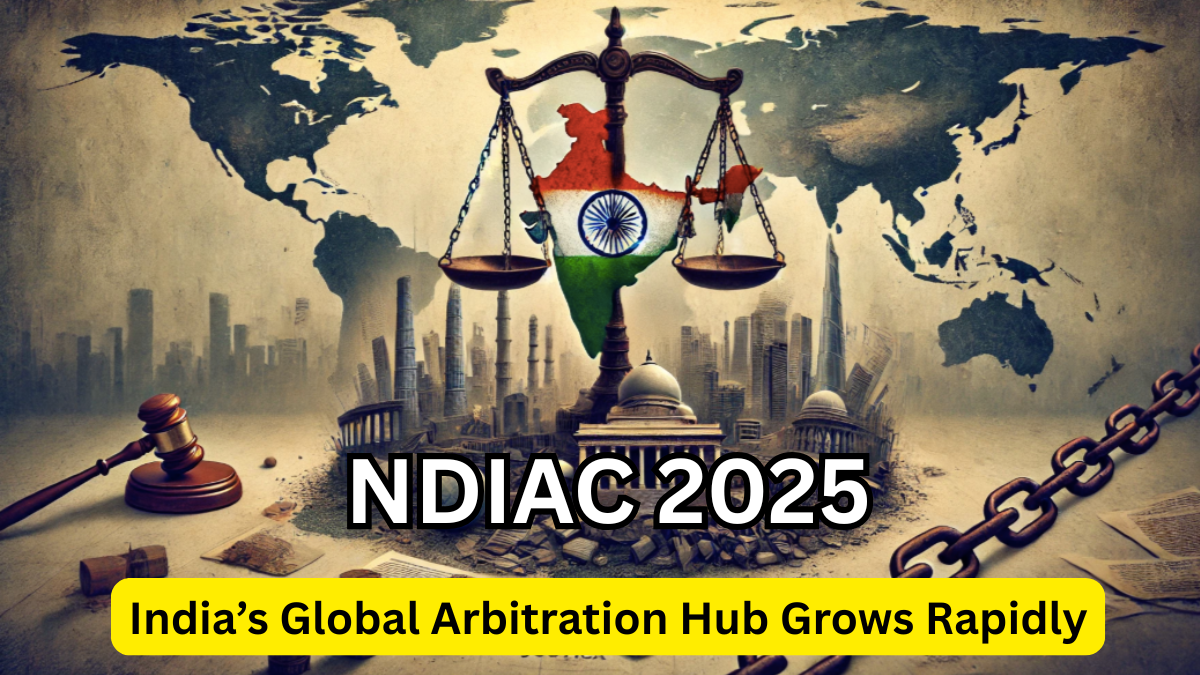India is swiftly emerging as a major player in global dispute resolution. At the heart of this transformation is the New Delhi International Arbitration Centre (NDIAC)—an institution that’s rapidly shaping up to be a world-class NDIAC arbitration hub for both domestic and international cases.
Let’s explore how NDIAC 2025 is positioning India on the global arbitration map and what it means for businesses and legal professionals alike.

Why NDIAC Is Gaining Global Momentum
The evolution of the NDIAC arbitration hub in recent years is no coincidence. With India’s growing economic influence and an urgent need for speedy dispute resolution, NDIAC has emerged as a game-changer.
Key Factors Behind NDIAC’s Rise
-
Government backing and policy support
-
World-class infrastructure with modern hearing rooms
-
A panel of globally recognized arbitrators
-
Reduced timelines and digitized processes
What Makes NDIAC a Preferred Choice for International Cases?
NDIAC is now being considered alongside global institutions like the Singapore International Arbitration Centre (SIAC) and the London Court of International Arbitration (LCIA).
Here’s how NDIAC compares:
| Feature | NDIAC (India) | SIAC (Singapore) | LCIA (UK) |
|---|---|---|---|
| Location | New Delhi | Singapore | London |
| Jurisdiction Flexibility | Domestic & International Cases | Primarily International | Primarily International |
| Cost-Effective | Yes | Moderate | Expensive |
| Case Turnaround Time | 8-12 months | 9-14 months | 12-18 months |
| Use of Technology | Advanced virtual hearings | Yes | Moderate |
The growing preference for the NDIAC arbitration hub in international cases is not just about location—it’s about value, speed, and efficiency.
Major Developments at NDIAC in 2025
Expanded Global Network
NDIAC has partnered with major arbitration centres in Asia-Pacific, Europe, and the Middle East. These collaborations increase cross-border recognition and award enforcement.
Digital Transformation
To stay ahead, NDIAC has invested in:
-
AI-based case management tools
-
Secure online submission systems
-
Hybrid (physical + virtual) arbitration formats
Sector-Specific Arbitration Panels
To meet growing demand, NDIAC now includes specialists across:
-
Construction and infrastructure
-
IT and startups
-
Environmental and energy disputes
Why Businesses Should Consider NDIAC
Whether you’re a startup or a global enterprise, the benefits of choosing NDIAC include:
-
Faster resolutions compared to traditional litigation
-
Lower legal and administrative costs
-
Recognition of arbitral awards in multiple countries
-
India-based but globally connected
The NDIAC arbitration hub is not only suitable for Indian companies but is now trusted by foreign entities for handling international cases as well.
FAQs
What is the main advantage of using the NDIAC arbitration hub over traditional court litigation?
NDIAC offers a faster, private, and cost-efficient route for resolving disputes, especially those involving international stakeholders.
Is NDIAC suitable for handling international cases?
Yes, NDIAC is fully equipped to resolve complex international cases and its awards are enforceable under the New York Convention.
How do parties initiate arbitration at NDIAC?
You can initiate arbitration by submitting a formal request on the NDIAC website, attaching relevant contracts, and choosing arbitrators from the NDIAC panel.
What types of disputes can NDIAC handle?
NDIAC handles commercial, construction, startup, cross-border, energy, IP, and infrastructure disputes, among others.
Final Thoughts
As India strengthens its global economic footprint, the NDIAC arbitration hub is quickly becoming one of the top destinations for efficient and credible dispute resolution. With digital upgrades, global collaborations, and industry-specific focus, NDIAC 2025 is set to rival global institutions in managing high-value international cases.
For companies seeking fast, fair, and futuristic arbitration, NDIAC is now a leading choice—not just in India, but globally.
Click here to learn more